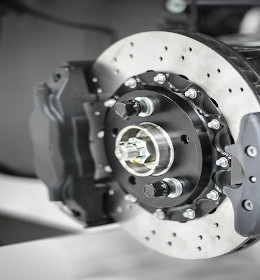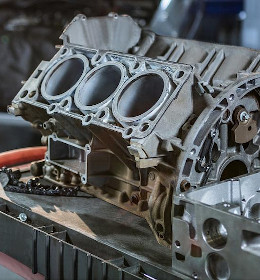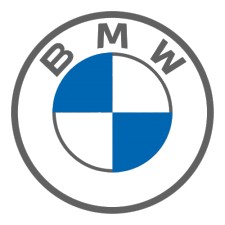Que signifie votre code Code Défaut VOLKSWAGEN ?
Grace au système OBD, les
Volkswagen
fabriqués après 1996 sont normalement équipés d'une prise diagnostique OBD.
Si l'ordinateur de la voiture rencontre un problème,un code d'erreur ou un code de diagnostic (DTC)
sera stocké dans la mémoire de l'ECU de la voiture.
Avec un lecteur OBD branché sur le port OBD (On-Board Diagnostics) de la voiture, vous pouvez lire la liste des codes stockés, et donc découvrir quel est le problème.
Les codes suivent une formule permettant de savoir généralement quel est le problème avant même de regarder le tableau ci-dessous.
Nous vous présentons ci-dessus une liste très complète des différents codes défauts possibles.
Si le code défaut de votre auto s'affiche au tableau de bord, vous n'aurez peut-être même pas besoin d'un lecteur OBD . il sera dans la liste .
Réparer le code défaut de votre auto, c'est potentiellement simple à faire avec vos revues et méthodes techniques.

Réparer le code défaut de votre auto, c’est potentiellement simple à faire avec nos revues et méthodes techniques
| Code | Libellé |
|---|---|
| P0C65 | Generator position sensor 1 circuit range/performance |
| P0C66 | Generator position sensor 1 circuit low |
| P0C67 | Generator position sensor 1 circuit high |
| P0C68 | Generator position sensor 1 circuit intermittent/erratic |
| P0C69 | Generator position sensor 2 circuit/open |
| P0C6A | Generator position sensor 2 circuit range/performance |
| P0C6B | Generator position sensor 2 circuit low |
| P0C6C | Generator position sensor 2 circuit high |
| P0C6D | Generator position sensor 2 circuit intermittent/erratic |
| P0C6E | High-voltage battery pack temperature sensor 1 correlation with temperature sensor 2 |
| P0C6F | High-voltage battery pack temperature sensor 2 correlation with temperature sensor 3 |
| P0C70 | High-voltage battery pack temperature sensor 3 correlation with temperature sensor 4 |
| P0C71 | High-voltage battery pack temperature sensor 4 correlation with temperature sensor 5 |
| P0C72 | High-voltage battery pack temperature sensor 5 correlation with temperature sensor 6 |
| P0C73 | Motor electronics coolant pump 1 control performance |
| P0C74 | Motor electronics coolant pump 2 control performance |
| P0C75 | High-voltage battery system discharge time too short |
| P0C76 | High-voltage battery system discharge time too long |
| P0C77 | High-voltage battery system pre-charge time too short |
| P0C78 | High-voltage battery system pre-charge time too long |
| P0C7B | Alternator inverter voltage too high |
| P0C7C | High-voltage battery pack temperature sensor 7 circuit/open |
| P0C7D | High-voltage battery pack temperature sensor 7 circuit range/performance |
| P0C7E | High-voltage battery pack temperature sensor 7 circuit low |
| P0C7F | High-voltage battery pack temperature sensor 7 circuit high |
| P0C80 | High-voltage battery pack temperature sensor 7 circuit intermittent/erratic |
| P0C81 | High-voltage battery pack temperature sensor 8 circuit/open |
| P0C82 | High-voltage battery pack temperature sensor 8 circuit range/performance |
| P0C83 | High-voltage battery pack temperature sensor 8 circuit low |
| P0C84 | High-voltage battery pack temperature sensor 8 circuit high |
| P0C85 | High-voltage battery pack temperature sensor 8 circuit intermittent/erratic |
| P0C86 | High-voltage battery pack temperature sensor 6 correlation with temperature sensor 7 |
| P0C87 | High-voltage battery pack temperature sensor 7 correlation with temperature sensor 8 |
| P0C88 | High-voltage battery pack temperature sensor 9 circuit/open |
| P0C89 | High-voltage battery pack temperature sensor 9 circuit range/performance |
| P0C8A | High-voltage battery pack temperature sensor 9 circuit low |
| P0C8B | High-voltage battery pack temperature sensor 9 circuit high |
| P0C8C | High-voltage battery pack temperature sensor 9 circuit intermittent/erratic |
| P0C9C | 14V power control unit current sensor 2 circuit/open |
| P0C9D | 14V power control unit current sensor 2 circuit range/performance |
| P0C9E | 14V power control unit current sensor 2 circuit low |
| P0C9F | 14V power control unit current sensor 2 circuit high |
| P0CA0 | 14V power control unit current sensor 2 circuit intermittent |
| P0CA1 | Malfunction indicator light (MIL) request from the drive motor control unit |
| P0CA2 | DC-DC converter step-down voltage performance |
| P0CA3 | DC-DC converter step-up voltage performance |
| P0CA4 | High-voltage battery charging voltage high |
| P0CA5 | High-voltage battery discharge voltage high |
| P0CA6 | High-voltage battery charging current high |
| P0CA7 | High-voltage battery discharge current high |
| P0CBC | Drive motor 1, coolant temperature sensor circuit/open |
| P0CBD | Drive motor 1, coolant temperature sensor circuit range/performance |
| P0CBE | Drive motor 1, coolant temperature sensor circuit low |
| P0CBF | Drive motor 1, coolant temperature sensor circuit high |
| P0CC0 | Drive motor 1, coolant temperature sensor circuit intermittent/erratic |
| P0CC1 | Drive motor 1, coolant pump control circuit/open |
| P0CC2 | Drive motor 1, coolant pump control circuit range/performance |
| P0CC3 | Drive motor 1, coolant pump control circuit low |
| P0CC4 | Drive motor 1, coolant pump control circuit high |
| P0CC5 | 14V power control unit current sensor 1 correlation with current sensor 2 |
| P0CC6 | Charging port door open request switch 'wake-up' circuit/open |
| P0CC7 | Charging port door open request switch circuit/open |
| P0CC8 | Charging port door open request switch circuit range/performance |
| P0CC9 | Charging port door open request switch circuit low |
| P0CCA | Charging port door open request switch circuit high |
| P0CCB | Charging port door open request switch circuit intermittent/erratic |
| P0CCC | Charging port door position sensor circuit/open |
| P0CCD | Charging port door position sensor circuit range/performance |
| P0CCE | Charging port door position sensor circuit low |
| P0CCF | Charging port door position sensor circuit high |
| P0CD0 | Charging port door position sensor circuit intermittent/erratic |
| P0CD1 | Charging port door unlock control circuit/open |
| P0CD2 | Charging port door unlock control circuit range/performance |
| P0CD3 | Charging port door unlock control circuit low |
| P0CD4 | Charging port door unlock control circuit high |
| P0CD5 | High-voltage battery pack coolant temperature sensor 2 circuit/open |
| P0CD6 | High-voltage battery pack coolant temperature sensor 2 circuit range/performance |
| P0CD7 | High-voltage battery pack coolant temperature sensor 2 circuit low |
| P0CD8 | High-voltage battery pack coolant temperature sensor 2 circuit high |
| P0CD9 | High-voltage battery pack coolant temperature sensor 2 circuit intermittent/erratic |
| P0CDF | High-voltage battery pack coolant control valve 1 control circuit/open |
| P0CE0 | High-voltage battery pack coolant control valve 1 performance/stuck off |
| P0CE1 | High-voltage battery pack coolant control valve 1 stuck on |
| P0CE2 | High-voltage battery pack coolant control valve 1 control circuit low |
| P0CE3 | High-voltage battery pack coolant control valve 1 control circuit high |
| P0CE4 | High-voltage battery pack coolant control valve position sensor circuit/open |
| P0CE5 | High-voltage battery pack coolant control valve position sensor circuit range/performance |
| P0CE6 | High-voltage battery pack coolant control valve position sensor circuit low |
| P0CE7 | High-voltage battery pack coolant control valve position sensor circuit high |
| P0CE8 | High-voltage battery pack coolant control valve position sensor circuit intermittent/erratic |
| P0CE9 | High-voltage electronics, coolant pump control circuit/open |
| P0CEA | High-voltage electronics, coolant pump performance |
| P0CEB | High-voltage electronics, coolant pump control circuit low |
| P0CEC | High-voltage electronics, coolant pump control circuit high |
| P0CED | High-voltage electronics, coolant pump enable circuit/open |
| P0D07 | Battery charging system positive contact circuit/open |
| P0D08 | Battery charging system positive contact stuck closed |
| P0D09 | Battery charging system positive contact stuck open |
| P0D0A | Battery charging system positive contact control circuit/open |
| P0D0B | Battery charging system positive contact control circuit range/performance |
DEFINISSEZ VOTRE MARQUE POUR ACCEDER A VOS CODES DEFAUTS
-
Revue technique RTA

Revue Technique Automobile
La revue technique de référence depuis 1946. La RTA est une revue papier pour tous publics, qui vous permet d'effectuer les petites et les grosses réparations
 Voir le descriptif
Voir le descriptif
-
Entretien courant MTA

Méthode Technique Automobile
La MTA est issue de nos outils destinés aux pros de l'auto. Ces méthodes en ligne permettent d'effectuer les opérations de maintenances de votre auto (filtres, courroies, etc.)
 Voir le descriptif
Voir le descriptif
-
Toutes réparations MTAx

Méthode Technique Automobile Expert
La MTA expert est un outil en ligne destiné aux experts en mécanique et en carrosserie, pour effectuer tous types de réparations sur une voiture.
 Voir le descriptif
Voir le descriptif















